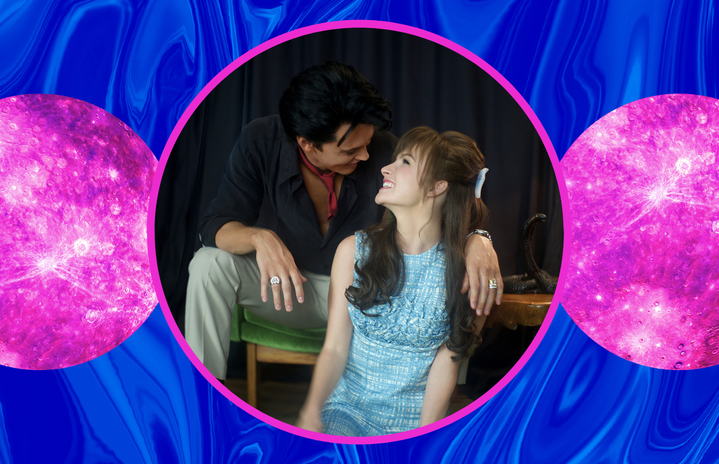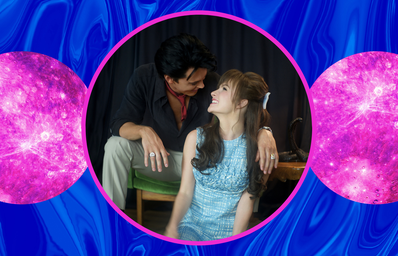Earlier this month, Sofia Coppola released Priscilla, her take on the life of a young girl being cultivated by a global sensation. The film is an adaptation of Priscilla Presley’s memoir, Elvis and Me, published in 1985, less than a decade after her ex-husband, Elvis Presley’s, death. Although Priscilla herself has expressed praise for the biopic, her daughter, Lisa Marie Presley, was more than hesitant for production prior to her untimely death earlier this year. Before production commenced, Elvis’ family reviewed the script; Lisa Marie claimed that her father “only comes across as a predator and manipulative.” Priscilla has spent much of her life displaying nothing but praise for her ex-husband and has even wished to be buried next to him despite their separation a few years prior to his death. Lisa Marie’s primary concern was about the criticism of Elvis’ character, played by Jacob Elordi, portraying him as an emotionally abusive groomer.
The film has received both enormous praise and criticism for what is said to be the hypocrisy of Priscilla’s views. How could she talk so highly about someone yet present them in such a cruel way? I would disagree on this critique. While the film shined a negative light on Elvis, its purpose was to grasp the mind of Priscilla, not to reiterate Elvis’ story with bias. I mean, we have already seen a blockbuster Elvis Presley biopic in theatres last year. The reality is: although the mid-20th century was a different time, Priscilla was fourteen years old when she met her future husband (Elvis) who was a decade her senior. The beginning of the film shows Priscilla Beaulieu (Cailee Spaney) being scouted by a man in a diner, proposing that she meet the King of Rock ‘n Roll. From then on, Elvis’ sights were on the teenaged Priscilla. “You’re just a baby,” he tells her upon their first conversation.
From then on, the film follows the highs and lows of the relationship through the eyes of Priscilla. She moves to Memphis, Tennessee from Germany to pursue their relationship roughly three years after first meeting. Much of the film from that point forward are delicate shots of Priscilla literally sitting still and looking pretty. Some may say the minimal dialogue is anti-climactic. However, I believe this suits Priscilla’s story, as she describes living passively alongside her authoritative husband. No dialogue is needed to explain her feelings. The silence speaks volumes.
While completing her last year of high school and residing in the exuberant Presley residence, Priscilla mentions that she would like to start working part-time at a boutique while awaiting Elvis’ return from Los Angeles. His response is an ultimatum: a career or him, and that she made that choice the moment she flew to Memphis. And so, she reluctantly agreed, and life went on with freshly manicured nails and voluminous blowouts, all while her husband had his own purpose, and she was essentially a beloved side piece. Priscilla’s isolation is a major theme of the film.
As the passage of time continues, the audience follows empty food trays, photoshoots and countless affairs between Elvis and his Hollywood co-stars. Priscilla’s teen dream slowly fades away, as being Elvis’ prized possession was only beneficial when he needed it most. Sofia Coppola has a gift in illustrating the female perspective, as seen in The Virgin Suicides or Marie Antoinette. Coppola examines the simplicity in Priscilla, a young girl whose only hope was to be something beyond Elvis’ partner. The visuality of the film is one of its greatest strengths in storytelling. Elvis is undoubtedly portrayed as an antagonist, but every story has two sides, and this is the first film where we’ve seen Priscilla’s. We see Priscilla not as a wife, a mother, or a burden, but lonesome Priscilla as a young girl who is experiencing life for the first time.
Of course, modern-day Priscilla praises Elvis despite his flaws because love is infatuating in times of both good and bad. Elvis and Me was released years after Elvis’ death, thus I believe Priscilla looked back on her years with the star with a new and mature point of view. She did in fact love him, but that does not dismiss the fact that what happened was morally wrong.


